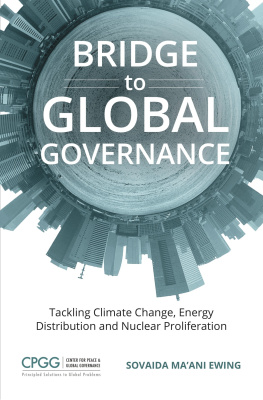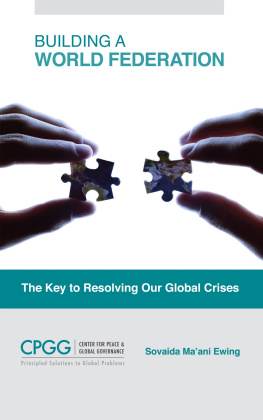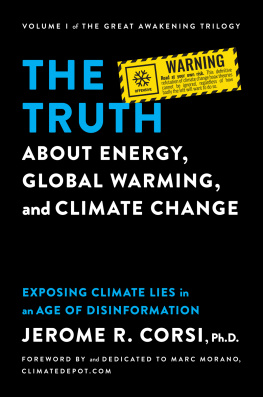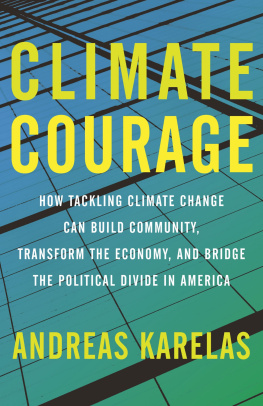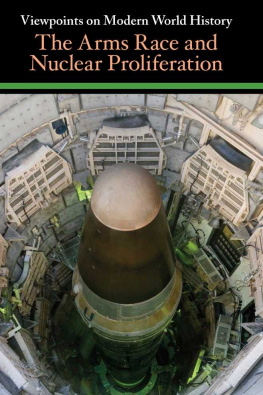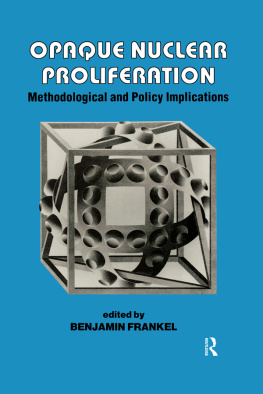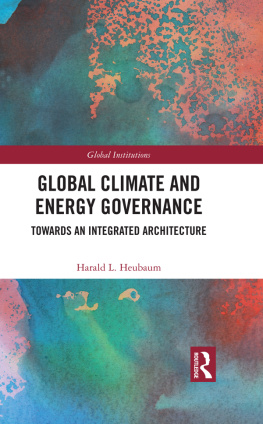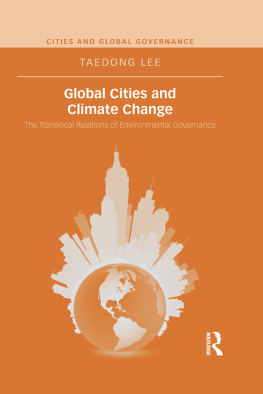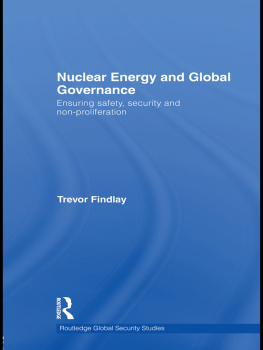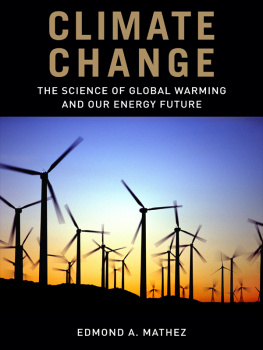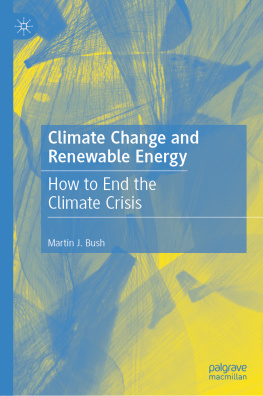Bride to Global Governance
Bridge to Global Governance
Tackling Climate Change, Energy Distribution and Nuclear Proliferation
Sovaida Maani Ewing
About the Author
Sovaida Maani Ewing is the founder and director of The Center for Peace and Global Governance , a virtual think tank and online forum that pools and proposes principled solutions to pressing global problems through publications, podcasts, lectures, workshops and targeted consulting.
Also by Sovaida Maani Ewing
- Collective Security within Reach
- Building a World Federation: The Key to Resolving Our Global Crises
- 21st Century Ready: How You Can Help Solve the Global Problems of Our Times
Imprint
Bridge to Global Governance: Tackling Climate Change, Energy Distribution and Nuclear Proliferation
Copyright 2018 by Sovaida Maani Ewing. All rights reserved.
Center for Peace and Global Governance
Designed by Kenneth P. Ewing
ISBN 978-0-9909437-8-5 (paper)
ISBN 978-0-9909437-9-2 (electronic)
Cataloging information:
- Author: Sovaida Maani Ewing
- Title: Bridge to Global Governance: Tackling Climate Change, Energy Distribution and Nuclear Proliferation
- Subjects: peace, security, global transformation, high school, university students, global problems, climate change, energy distribution, nuclear proliferation, nuclear energy, principled solutions, global equity
Our books may be purchased for educational, business, or professional use. For information about bulk purchases, please email sales@cpgg.org or write to us at
Center for Peace and Global Governance
Sales Department
4201 Cathedral Ave NW Suite 715E
Washington, DC 20016
Dedication
To Ken, Gigi, and Baharieh
Acknowledgement
I owe a substantial debt of gratitude to my beloved husband Ken, who has read multiple drafts of this book and painstakingly edited each one. He has also spent countless hours immersing himself in the painstaking details of formatting and designing the books layout thus immeasurably enhancing its quality.
I am also indebted to both my husband and our daughter, Gigi Ewing, for their boundless patience, support, encouragement and love, without which this book would never have seen the light of day.
Bridge to Global Governance
Bridge to Global Governance
Tackling Climate Change, Energy Distribution and Nuclear Proliferation
Contents
- About the Author
- Imprint
- Dedication
- Acknowledgement
- Bridge to Global Governance
- Contents
- Preface
- IntroductionHumanity at the Crossroads
- 1 ~ The Vision
- How and Why the ECSC Was Created
- Jean Monnet and The Schumann Plan
- 2 ~ What Can We Learn From the ECSC?
- The Qualities and Motivations of Its Founders
- Principles Woven into the Fabric of the Institution
- An Idea Whose Time Had Come
- The Pitfalls We Must Avoid
- 3 ~ Understanding the Dangers We Face
- Our Excessive Reliance on Fossil Fuels to Meet Soaring Energy Demands Is Severely Harming Us
- Our Current Energy Distribution System Is Irretrievably Broken
- Wielding Oil as a Weapon and the Culture of Impunity
- Global Warming And Climate Change
- 4 ~ Nuclear Energy Is Necessary In The Short Term
- Fukushima And Other Temporary Set Backs
- Continuing Strong Interest In Certain Geographic Regions
- Taking a Long-term View: Nuclear Energy Is Still a Vitally Important Option
- 5 ~ Fear Of Nuclear Energy
- Harm to Our Health and Environment
- Comparing Risks
- Reactor Safety
- Proliferation for Military Uses
- Nuclear War
- Nuclear Terrorism
- 6 ~ Institutions and Policies To Address Our Fears
- Abandon Nuclear Weapons and Reduce Conventional Arsenals
- Create an International Intelligence and Inspection Agency
- Have an International Standing Force to Apply the Rules
- Other Helpful Measures
- Change the System!
- 7 ~ The ECSC Is A Worthy Model
- 8 ~ Proposed Design for a Global Agency
- Ingredients for Success
- Nineteen Members
- Indirect Election of Members
- A Consultative Committee
- Majority Decisions, Subject to World Court Appeal
- Mandatory Global Production Levy for a Global Fund
- Control Over the Whole Nuclear Fuel Cycle
- Power to Regulate Nuclear Markets
- Power to Select Sites for Nuclear Plants
- Power to Regulate Health, Safety, and Security
- Globally Binding Rules and Enforcement
- Need for Transitional Period
- 9 ~ Responding to Skeptics and Opposition
- Conclusion
- Afterword
- Bibliography
- Index
Preface
My purpose in writing this book is several-fold. My primary aim is to propose a workable first step in the creation of global decision-making institutions that can effectively and efficiently attend to the urgent and immediate needs of the 21st Century. I hope to demonstrate that it is possible to build a global system of governance that serves all the peoples of the world and that is founded upon the principles of federalism. I believe that the best approach is to start in a narrow sphere of international endeavor and then to build outward, gradually and methodically expanding into broader spheres as success inspires confidence. As a starting point, I propose breaking the logjam caused in our global life by the complex of three seemingly intractable problems: global warming, inequitable distribution of energy, and nuclear proliferation. Success in this urgent but narrow sphere of international endeavor would bring immediate benefits to all and thereby engender hope, free us from the grip of paralyzed will, and inspire confidence to expand the spheres in which we apply this methodology, covering ever-widening areas of collective need.
Another purpose of this book is to demonstrate the power of even a handful of individuals, particularly those in positions of leadership motivated by only the best interests of humanity rather than self-interest and exhibiting certain sterling qualities like freedom from prejudice, to bring about organic and far-reaching changes in the structure of our global governance institutions that in turn foster peace, prosperity and stability in our global society. In a world where the rule of strongmen seems to be once again on the rise, where leaders unabashedly stir up the ugliest and most divisive of human emotions like xenophobia, racism, and sexism to gain and maintain their grip on power, and where the forces of nationalism appear to be gaining ascendancy resulting in the increasing fragmentation of human society, I believe it is essential that we remind ourselves of a better world which could be ours if we only bring ourselves to demand leaders with qualities that inspire trust and engender unity.
Lastly, but by no means of least importance, I aim to illustrate the power of consciously and deliberately weaving a set of universally agreed, global ethics into the very structures of our global governance institutions. It is not sufficient for our leaders to possess ennobling qualities. In addition, the very composition, voting structures, and processes that govern our institutions must also embody principles of oneness, equity, and uncompromising focus on the collective good to inspire trust and confidence in the governed and guard against the corrosive forces of self-interest and corruption.

